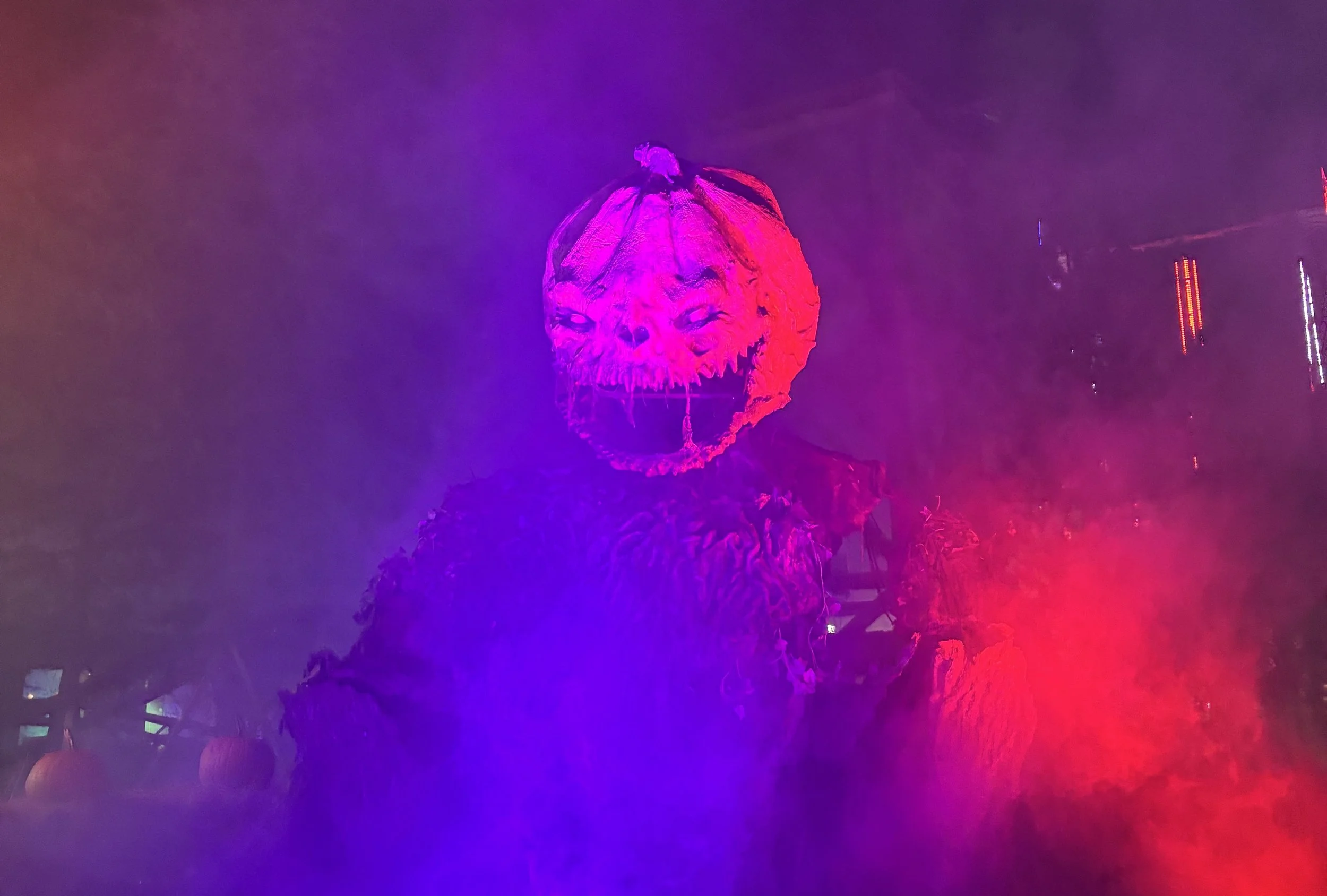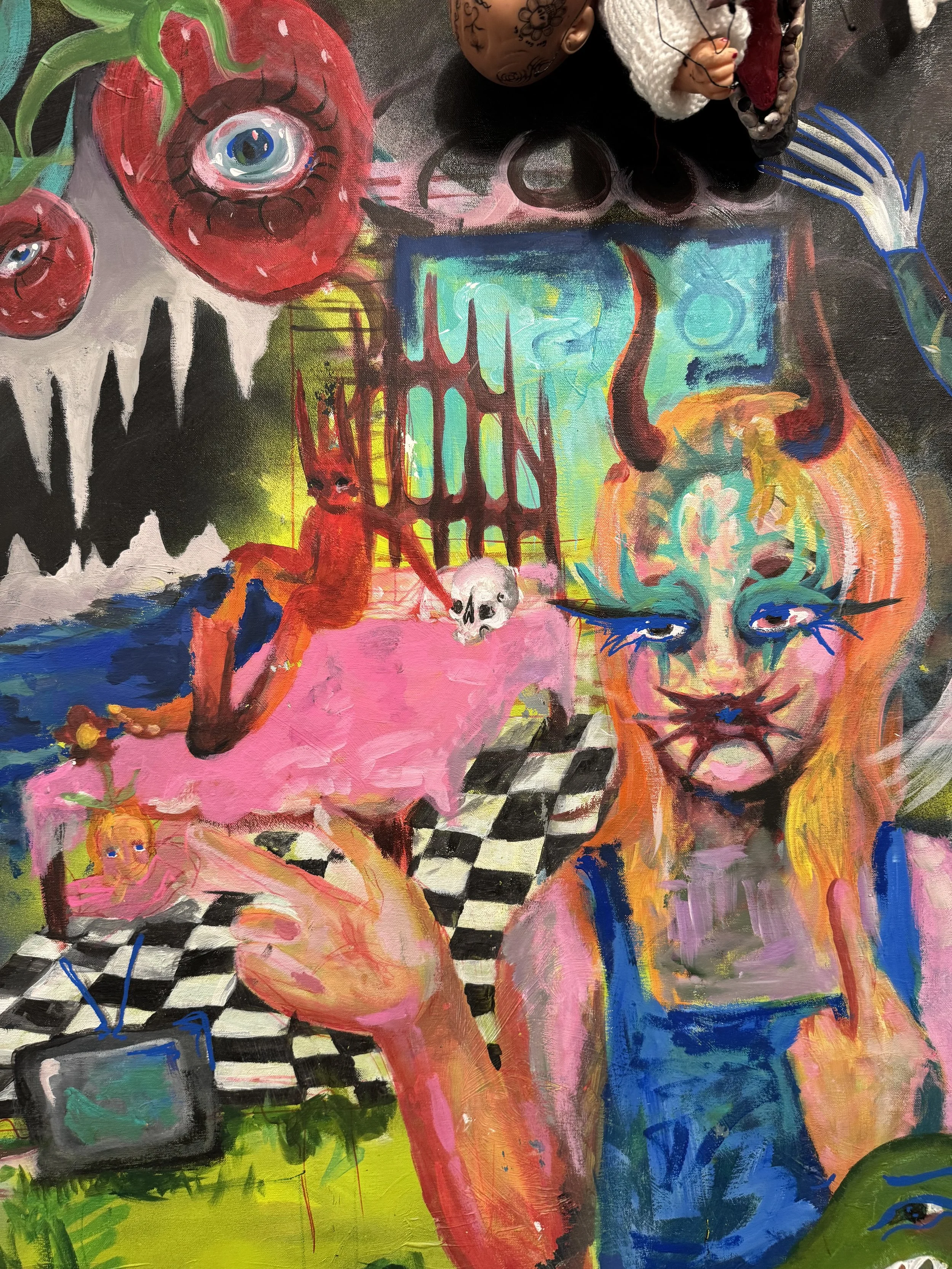Vancouver Filmmakers are Bridging Cultures Through Cinema With Wolf Spirit Films
/A chance meeting in a parking garage brought filmmakers and neighbours Gordon Loverin and Pamela Jones together, but what keeps them going is their desire to make change with their art. Gordon, who is from the Tlingit and Tahltan First Nations, and Pam, who is non-Indigenous, strive to tell positive stories that will foster a greater understanding. Together they have produced, written and directed numerous projects and have many more in development. Last year they debuted their film Beyond Human Power; a documentary that centres on Canada’s anti-potlatch law, and features the Yukon’s Dakhká Khwáan Dancers and the Daghalhaan k’e dance group. The film, which is now streaming on CBC Gem, has opened many doors for the duo.
After a special event screening of Beyond Human Power at the Museum Of Anthropology in November, Gordon received an invitation to meet with the Consul General of Germany. He was chosen as one of 25 filmmakers from around the world, and the only Canadian in a delegation hosted by the prestigious Goethe Institute. Gordon and Pam are now heading off to Berlinale, one of the biggest feature film festivals and markets in the world, to represent Canada where they will have meetings set up with German filmmakers and production companies with the goal of sharing information about the film industry in Canada, and to help facilitate collaborations and co-productions.
SAD chatted with Gordon and Pam to discuss their collaboration and process before they head to Germany for The 70th annual Berlinale taking place from February 20th to March 1st 2020.
Gordon Loverin and Pamela Jones on set with a production fro Wolf Spirit Films
SAD: As Wolf Spirit has just launched, to a new audience, how would you describe the productions you make and will make in the future? How do you plan to engage your audiences?
Gordon: In Canada, Indigenous stories are couched within negative stereotypes that have been created through mainstream media outlets over the years. Recently, Indigenous producers themselves have defaulted to telling stories from a negative base as well. Like many Indigenous peoples, I have experienced my own traumas from childhood and onward. However, those traumas do not define me or my world view. I also see the beauty of our culture and the resilience of Indigenous peoples and recognize our efforts as individuals to build a better tomorrow for ourselves, our families and our communities. There is spirituality, bravery, honour, culture and the taking back of our place on our lands that transcend to a universal story. As one of our documentary subjects put it, Indigenous people are beautiful and noble, and we deserve our place in society. These are the stories of hope and perseverance that I want to tell through narrative TV and feature film projects. I want non-Indigenous people to come to know us as distinct, but also that we too strive for a better tomorrow for the generations who follow.
SAD: Wolf Spirit Films seems to have a lot of projects in development, and as a new production company, that's incredibly impressive. Did you find the inspirations behind the pieces came all at once with the creation of Wolf Spirit, or are these long-standing notions and ideas that are being brought into reality?
Pam: Our first film script Restoration came from so many of our shared experiences as parents. As for our other projects, Gordon has always wanted to do Kiks.adi, based on the battle at Sitka in 1804. He went to the Sitka Chief to ask permission to tell the story of a group of Tlingit warriors who held off a Russian army for six days in Alaska. We also both love flipping history on its head, so the story of 1492 was a perfect starting point for our series Kanata, another project we are developing which has an organic sci-fi aspect to it. We’re now working on getting international partners for both projects and will be travelling to Berlin this month for the Berlinale where we will have the opportunity to talk to potential partners. Many of the ideas for our other film and TV projects have come from our trips to the Yukon. Being in nature always inspires us. Being on the road for hours with no radio, has given us a lot of time to not only sing out loud, but also to hash out storylines.
SAD: You are both renowned for the work you do, and have both been recognized at film festivals and the like for your cinematic endeavors, how does it feel to have your work showcased?
Gordon: As screenwriters, directors, producers and artists we all have one burning desire – to have our voice heard. It’s a subjective industry and often one person’s reaction to the art we produce is very different from the other. However, when complete strangers are moved and connected to the art you are creating, it is a sense of affirmation that you had something to say. There was someone who heard and connected to your story. There was appreciation for the art. That’s the bar we all hope to meet and if we do, it’s a deep sense of accomplishment.
SAD: As someone who is not Indigenous, how did creating Beyond Human Power help you to understand and connect with the cultures and practices seen in the film? How would you want those who are watching the film to think and feel about the notions confronted?
Pam: I was shocked that I’d never been taught about the potlatch ban. I couldn’t believe that this happened here in B.C. We live in a country that’s known for acceptance and diversity, and yet we threw Indigenous people - including hereditary chiefs, in jail for their cultural practices; for dancing and for holding potlatches. Imagine having never left your remote village and suddenly you’re in a dark cell, watching the metal bars slam shut in front of you. We did that to people in B.C. in 1921, and the law was still in place until 1951.
I’ve got to admit, working on this documentary, I felt ashamed of my country, not only for the stories surrounding the potlatch ban, but also for the stories that came up about residential schools. It’s heartbreaking and unbelievable, but I can’t change the past. All I can do, as a non-Indigenous filmmaker, is to make sure we present stories from history that have not been taught, and create stories about our shared experiences. I will never know what it means to be Indigenous, but I do know what it means to be a mother, a sister, a daughter, to love people and to lose people I love. I know what it’s like to feel proud, insecure and the roller coaster of emotions we feel as human beings. I want to learn as much as I can about Indigenous culture and I want to find the threads that connect us as people. We need the voices of the many cultures within our country to be heard from their own perspectives, but sometimes we also need translators to help us. I see myself as someone who asks a lot of questions to facilitate understanding.
We had a private screening of Beyond Human Power at the Museum of Anthropology in Vancouver and we were pleased that our film started so many conversations between people who had never heard of the potlatch ban before. Many told us that they were moved and inspired by the resilience of the dancers, by their honesty, joy and passion for their culture.
SAD: How do you feel about how Indigenous issues are being addressed and discussed in modern day Canada? Do you think more could be done, or do you believe that the government is on the right track in bringing important issues to light?
Gordon: Indigenous peoples are making some headway in addressing historic grievances over colonization. However, there is unfinished business, and still a lot more to do to create an understanding between non-Indigenous Canadians and Indigenous peoples. You cannot take 500 years of colonization, 500 years of removing Indigenous peoples from their land, their governing systems, access to their resources, practice of their unique cultures and believe that you’ve fixed it with a land claim settlement, a Supreme Court victory or a return of a fraction of the land that was once held and believe the work is done. Five centuries of wrongdoing will take time to undo. That’s where cultural industries can pave a way for better understanding of each other. The work has only begun and there still is a lot more that both Indigenous and non-Indigenous peoples need to do to find balance with each other.
SAD: What are some of the most important lessons you have learned since creating Wolf Spirit, and what are you still eager to learn about the film/production industry?
Pam: It’s challenging work. Sometimes, as a non-Indigenous person, I feel people’s anger and resentment and it doesn’t feel good. But I understand it. So many horrific things have happened to Canada’s Indigenous peoples. But all we can do now is move forward. We can do better. I hope that in our small way, Wolf Spirit Films can help shift perspectives and break stereotypes.
One of the most important things I’ve learned since creating Wolf Spirit Films with Gordon, is a respect for our differences, our different ways of approaching things. But, I do find myself being overly cautious. I don’t want to offend anyone. It’s my job to ask permission and questions all the time, to check that what I’m doing is culturally acceptable. I love what I do and I feel called to do this work.
What am I eager to learn about the film business? Everything! Gordon keeps piling books up on my desk - editing, storyboarding, directing...but that’s one of the things I admire about him. He never stops wanting us to improve our craft.
SAD: What are your next steps with Wolf Spirit Films, and what can we expect in the future?
Gordon: As artists, our biggest challenge is to find the money to realize our visions. We’ve honed our voices together, Pam and I, we have a purpose for our art which is to bridge cultures through cinema. We both believe art, more than guilt politics, will show Canada and the world that we are talented, creative, motivated and hard-working artists. Those are the principles we hope to reflect through the characters we create as we put them up against the struggles that reveal to them what they are made of. And we hope our audiences are there cheering them on along the way.







